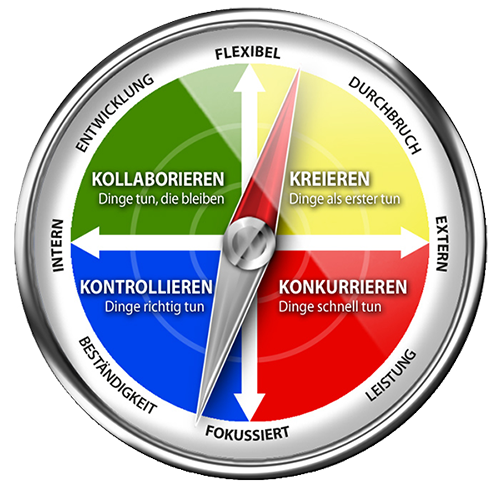Interview mit Robert A. Sedlák
CEO S&P Consulting | Guest Professor at the ECNU, Shanghai
“With the wrong radar system the iceberg cannot be detected early enough“
Since August 2018, S&P Consulting has been accompanying the Duisburger Versorgungs- und Verkehrsgesellschaft mbH (DVV) in DVVision – the program for the future. Within the scope of DVVision, employees of all companies of the DVV Group, departments, and hierarchical levels work together to recognize challenges, developments, and trends at an early stage to optimally prepare for them.
In the interview, Guest Professor Robert A. Sedlák talks about the ability and potential of an organization to develop independently and with foresight as well as to adequately deal with growing challenges.
DEAR MR. SEDLÁK, YOU DERIVE YOUR ADVICE FROM SOCIOSCIENTIFIC SYSTEMS THEORIES. HOW DO YOU DEFINE THE TERM “FORESIGHTED ORGANIZATION“?
We see organizations as highly complex social systems with existing hierarchical and communication structures. Following this understanding, we do not primarily consider the people in an organization as key levers, but rather the way in which an organization supplies itself with information and impulses evaluates these, and then comes to decisions. Consequently, we do not look first at the employees, but at the existing structures.
AND WHAT EXACTLY IS MEANT BY “FORESIGHTED“?
The future is and remains uncertain. It is therefore important to recognize or anticipate developments early on and to prepare the company for them. Consequently, an organization should ensure to be sufficiently supplied with external impulses, evaluate them, and develop its ability to act with foresight. Unfortunately, only a few organizations have recognized this for themselves and have adapted their planning and control processes accordingly.
WHAT HAPPENS TO COMPANIES THAT DO NOT ACT WITH FORESIGHT?
Every company crisis is ultimately the result of misjudgments or of not seeing developments that are already taking place behind the scenes. It is tragic to observe how even large business units of DAX-listed corporations have been making false market assessments for years and maneuvering from one emergency operation to the next. For us, these are indications that the radar systems are not aligned correctly and that an organization runs the risk of not recognizing the iceberg early enough and therefore damages itself with full force.
HOW IS A “RADAR SYSTEM“ OF AN ORGANIZATION CREATED?
An organization cannot observe the whole universe and take in all impulses from outside. Therefore, it must select. For this purpose, organizations develop their own observation and evaluation patterns over time. The question is what is relevant for the DVV and what is not. And in answering this question, it is already defined what the DVV Group does not observe from an organizational point of view and consequently may not notice. It may occur that highly relevant developments are simply not “on the screen”. We will work intensively at this point so that relevant developments are discussed and evaluated at an early stage to ensure that wise decisions for the future are made and then implemented.
“Every organization must therefore regularly check whether the evaluation benchmarks it applies are still up to date. Otherwise it can happen that an organization does not recognize or realize vital changes for itself in time and thus run into difficulties.In this context, we like to refer to the fact that an organization neglects to see the “black swan” or that the black swan is “reinterpreted” until it fits the familiar – a white swan.“
SO THE RADAR SYSTEM NEEDS TO BE CONSTANTLY REALIGNED?
Companies like to stick to what has proven itself. This works well until the framework conditions change. If this happens the standards for observation and evaluation must be adjusted. Every organization must therefore regularly check whether the evaluation benchmarks it applies are still up to date. Otherwise, it can happen that an organization does not recognize or realize vital changes for itself in time and thus run into difficulties. In this context, we like to refer to the fact that an organization neglects to see the “black swan” or that the black swan is “reinterpreted” until it fits the familiar – a white swan.
WHAT EXACTLY DOES THE “BLACK SWAN“ STAND FOR?
In the 18th century, after Europeans in Australia were convinced that, contrary to their previous assumption, not all swans are white, the term has become established as a metaphor for unforeseeable or unlikely events. What Europeans thought was impossible suddenly became true. And this is often the case with organizations. They find it very difficult to recognize and accept things that are still unknown or difficult to explain and do not fit into the existing pattern. It can be very exhausting to realize that what we do today does not fit anymore. It is quite normal that as a reaction to this, discussions go back and forth until the old picture fits again and one’s own attitude is confirmed. As a result, this often leads to necessary restructuring measures and in the worst case to insolvency.
CAN YOU ILLUSTRATE THIS WITH AN EXAMPLE?
Let us take the example Mr. Wittig has already mentioned. If Nokia had recognized early on that a computer company that focuses on multimedia is a serious competitor for the market leader in cell phones, there would have been a chance to correctly assess developments earlier. We can observe the same thing today in our automotive industry. First, the e-generator was talked to death and now billions of euros are being invested in the development of electrification of the automobile.
WHAT CAN WE DO TO PREVENT THIS FROM HAPPENING?
We want to identify the so-called black swans in the DVV Group and then take a closer look at them in order to recognize developments at an early stage. It will be our task to ensure that these facts, which we will identify as part of the program, are not talked down again just because they do not fit into the picture.
WHAT EXACTLY CAN THE DVV GROUP CHANGE IN ORDER TO DEVELOP INDEPENDENTLY AND WITH FORESIGHT?
The management initiated the program to provide an answer to precisely this question. We will first start with the analysis phase in order to be able to evaluate the current status. Based on our many years of experience, we have developed a procedure that enables us to assess the self-renewal of an organization. We will then discuss the results and derive the necessary program steps. It is all about learning to play a new tune, even if it is challenging. But everyone who masters an instrument will be able to confirm that it is worth it.
Case study:

As part of DVVision, the DVV Group, with the participation of all departments and hierarchical levels, works to identify challenges, developments, and trends at an early stage to adapt to them in the best possible way.
DVVision in the digital annual report of the DVV GROUP:
You can find the complete digital annual report for the year 2019
here.
Robert A. Sedlák is Senior Executive Consultant, Chairman and CEO at S&P Consulting International Consulting. Since 1987, he has been working as an independent management consultant for DAX-listed companies as well as for medium-sized businesses. One of his consulting focuses is the topic of “Foresighted Self-Renewal”. This method, developed with leading organizational scientists of the Newer Systems Theory, enables organizations to recognize signals for change early on and to use them specifically for a self-renewal process. In addition, it deals intensively with the question of how organizational and personal learning processes can be optimally interlinked within the framework of change processes.
Since 2013, Robert A. Sedlák has been a guest professor at the East China Normal University (ECNU) Shanghai and, for over 25 years, has been a member of the Bundesverband Deutscher Unternehmensberater BDU e.V. (Federal Association of German Management Consultants). He is also a CMC certified management consultant.
FURTHER INFORMATION
Learn more about our concepts for developing agile and foresighted organizations on the service descriptions linked below or contact us directly to request further information.
 Frédéric SedlákSenior Consultant | HR Management
Frédéric SedlákSenior Consultant | HR ManagementWe are always at your service+49 4102 69 93 22
Ask for free informationf.sedlak@spconsulting.de











